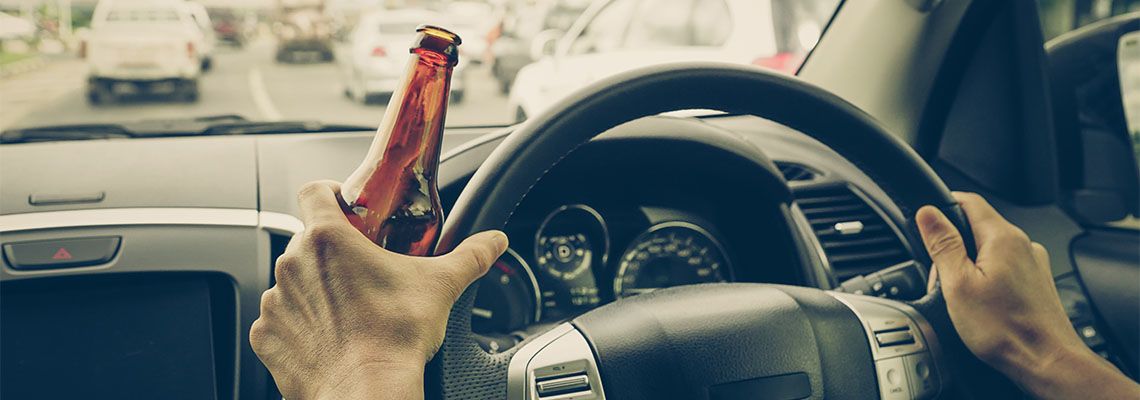Digital evidence can shape white-collar investigations long before anyone is arrested. Emails, chat logs, accounting files, cloud records, and even routine device data can be pulled into a timeline that prosecutors can use to explain who did what, when, and why.

DWI FAQ
In 2021, according to statistics from the New York State Division of Criminal Justice Services, there were about 21,624 misdemeanor and 3,757 felony DWI arrests statewide. In New York State, motorists are prohibited from operating a vehicle while intoxicated, ability impaired, or under the influence of alcohol or drugs. If you've been arrested and charged with a drunk driving-related offense, understanding what to expect or the next step to take is a way to prevent further stress.
At the Law Office of Michael D. Litman, PLLC, we're committed to offering comprehensive guidance and skilled representation to clients in their DUI/DWI cases. Our knowledgeable New York State criminal defense attorney can answer some of your frequently asked questions about DUI charges. In addition, we will build a strong defense to help fight your charges and keep your driving record clean. Our firm proudly serves clients across Westchester County, New York, and the surrounding areas, including Yonkers, Harrison, and White Plains.
Can I refuse the breath and/or blood test when pulled over on suspicion of DWI?
If you're suspected of driving impaired or intoxicated, a law enforcement officer can ask you to stop your vehicle. They may request some DWI tests – Breathalyzer or blood tests. Essentially, you can refuse the roadside portable breath test (PBT) without any penalty, however, you may still be arrested if the police have enough evidence to believe you are intoxicated or impaired.
You can also refuse the chemical test of your breath or blood at the police station, however there are possible DMV penalties for your refusal. Those possible penalties include a one-year revocation of your driver's license, and, if you have a CDL license, it can be revoked for 18 months, even if you weren't driving a commercial vehicle when your were arrested. Additionally, the prosecutor will try to use your refusal as consciousness of guilt, if the case ever goes to trial.
If I've been charged with a DWI, will I go to jail?
Facing DUI/DWI charges in New York State can be frightening and overwhelming. If convicted, you may be subject to lengthy jail time, hefty fines, DMV points, a criminal record, license revocation, and other life-altering implications. A strategic lawyer can represent you aggressively in court, uphold your driving privileges, and make sure you do not suffer any consequences or end up in jail. Most people charged with a DWI for the first time, will not get jail time if there are no aggravating factors.
Will I lose my license? How will I get to work?
At your first court appearance, known as the arraignment, your license will be suspended. If you refused the breath or blood test, it will be temporarily suspended for 15 days, then reinstated until there is a DMV refusal hearing. If you lose the DMV refusal hearing, your license will be revoked for one-year.
If you took the breath or blood test at the station, your license will be suspend while the case is pending. You may be eligible to get a conditional license 30 days after your arraignment date. However, if not having a license for those first 30 days is going to create an extreme hardship in going to work, school or medical appointments, you may qualify for a hardship license. A hardship license will permit you a limited scope of driving while you wait the 30 days to be eligible for the conditional license.
When the case is finished, if you plead guilty, or were found guilty of a DWI or DWAI, your license will be revoked or suspended. If you were able to get a pre-conviction conditional license, you should be eligible to get a post-conviction conditional license, so you can continue driving until your full license is restored.
What should I expect during the first court appearance?
At the first court appearance or arraignment, the judge will inform you of all the charges filed against you. Your attorney will enter a plea of "Not Guilty" on your behalf. Your license will be suspended, and you may need to give the court your physical license. The Court may also refer you to get an alcohol evaluation, to see if treatment is needed.
The arraignment is the time to request a hardship hearing, which your attorney should be prepared to do on the arraignment date. The case will then be adjourned for another court appearance, so your attorney can review evidence provided by the prosecutor, and try to negotiate a reduction in the charge.
Is it worth it to fight a DWI?
Fighting your drunk driving charges is absolutely worthwhile. If you're convicted for a first DWI or DWAI in New York State, you may be facing:
Fines of between $500 and $1,000.
Up to 364 days in jail.
Mandatory alcohol or substance abuse program.
Up to one-year license suspension.
Other far-reaching legal consequences.
With your personal reputation, future, quality of life, and career in possible jeopardy, fighting your DUI/DWI charges is definitely worth it.
Are there any ways to reduce my charge?
In New York State, you may be allowed to reduce your DWI charge or sentence through the following:
Negotiating a favorable plea agreement.
Voluntary completion of a Pretrial Diversion Program.
Finding proof problems with the prosecution's case.
A reliable attorney can review all aspects of the case and your personal circumstances to try to get the best outcome.
Is hiring an attorney necessary?
YES. Hiring an attorney to represent you in your drunk driving case is extremely important. A highly-skilled DUI/DWI defense attorney can help you understand the charges against you, investigate every aspect of your case, and strategize an effective defense to help fight your charges. In addition, your legal counsel can fight vigorously for your rights, identify weaknesses in the prosecutor's case, attempt to establish your innocence and help keep your driving record as clean as possible.
Strong & Reliable Legal Representation
When facing DWI allegations, retaining a highly-skilled criminal and DWI defense lawyer is imperative for effective legal representation in your case. At the Law Office of Michael D. Litman, PLLC, we're committed to protecting individuals charged with drunk driving from the worst possible situation. Our dependable attorney can investigate your case details, dispute the allegations against you with factual evidence, and help you retain your driving privileges and freedom.
Contact us at the Law Office of Michael D. Litman, PLLC, today to schedule a simple case assessment with a seasoned DUI/DWI defense attorney. Our trusted lawyer can help you navigate the New York State criminal justice system and represent you aggressively at every phase of the legal process. We proudly serve clients across Westchester County, New York, and the surrounding areas, including Yonkers, Harrison, and White Plains.
RECENT POSTS
Facing criminal charges can be an overwhelming and stressful experience, particularly when they could escalate from a misdemeanor to a felony. Many people may not realize that what starts as a seemingly minor offense can, in certain circumstances, turn into something far more serious with much more severe consequences.
In New York, misdemeanors are divided into three main categories: Class A, Class B, and unclassified misdemeanors. Class A misdemeanors are the most serious, while Class B misdemeanors are less severe, and unclassified misdemeanors often involve specific statutes such as traffic or local ordinances. Although misdemeanors are less severe than felony offenses, they can still carry significant penalties, including jail time, fines, and a lasting criminal record.




